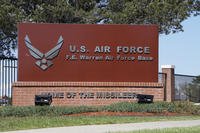The Marine Corps has started up a new school and training center to help bring a new skill set to the 247-year-old military branch: coding.
On Friday, the service announced that it had established the Marine Corps Software Factory in the tech development hub of Austin, Texas. The command will not only train Marines in how to develop software, earning a new job specialty in the process, it will also serve as a home from which they will develop custom solutions for commanders.
The program, which is starting life as a three-year pilot, will kick off with a class of six Marines this summer, but Lt. Col. Charlie Bahk, the project's director, says the hope is that ultimately "we'll be at a total of 54."
Read Next: Russian Jet Bumps Air Force Drone over Black Sea, Causing Unmanned Aircraft to Crash
Bahk, who spoke with Military.com on Tuesday, explained that the service hopes to build a group of software experts who can create tools "in a very quick and agile manner -- weeks and months, not years -- and provide them back to the commander and so that they can process and synthesize data information whenever he needs to be able to make decisions on the ground."
One already successful example Bahk gave of that combat-relevant development is a tool that "maximizes the capabilities" of commercial radar systems already in use.
"That application was developed ... and then delivered all within 90 days," Bahk said. "Within the succeeding 30 [days], we gained worldwide adoption across the Marine Corps."
The announcement of the new coding shop comes just days after Maj. Gen. James Glynn, the deputy commandant who oversees manpower and reserve affairs, told reporters that he is eager to find ways of getting software developers into the Corps' ranks.
"If somebody could present a compelling way to do lateral entry for software development, we would absolutely entertain that conversation," Glynn said, referring to the idea of bringing experienced coders into the Marines at a higher than normal rank.
For now, the new program will look only to current Marines for its candidates. The press release noted that the first group "was sourced from the Communications Occupational Field."
However, Bahk said that the leaders behind the effort are "heavily" thinking about a way to make the "Application Developer" military occupational specialty (MOS) that the school will award something that future recruits can sign up for at a recruiting office.
In the meantime, the Marines are leaning on both the Army -- which has a similar program in Austin -- as well as the tech companies in the area to help them develop a base of knowledge and expertise over the next three years.
"We're trying to develop a new MOS … make the Marines, get them senior enough so that they can come back and train the junior guys," Bahk said.
The hope is that, by the end of the program, the Corps will have enough people trained to stand up five software squads that are six members each.
Those squads will then embed with the units they are developing software for in order to better understand the problem and what individual commanders need.
"The most effective way to do that is to live and breathe the same air as them and chew the same dirt as them," Bahk said.
In fact, the themes that Bahk brought up closely echo what leaders like Gen. David Berger, the Marines' top general and the driving force behind the Corps' modernization efforts, have been saying for years.
Although ideas like "Force Design 2030" -- the Corps' plan to become an older, more agile and talent-driven service -- seem poised to fundamentally change what an average Marine looks like, leaders say that the spirit of the branch, often defined by the idea of "every Marine a rifleman," will remain.
"The brand of the Marine Corps, the tenacity, the discipline, the warfighting ethos that we so centrally position ourselves around and build ourselves around, that does not change even for the Marines that are going to be [at the factory]," Bahk said.
"It's all about outcomes to support warfighting."
-- Konstantin Toropin can be reached at konstantin.toropin@military.com. Follow him on Twitter @ktoropin.
Related: The Marines Claim Wins on Revamp of Personnel Policies












